
Many individuals struggle to remember to take their medications consistently at home, which can have serious consequences on their health. In this informative article, we will explore effective strategies to help you remember to take your medications on time and as prescribed. By implementing these simple yet efficient techniques, you can improve medication adherence and ultimately enhance your overall well-being.
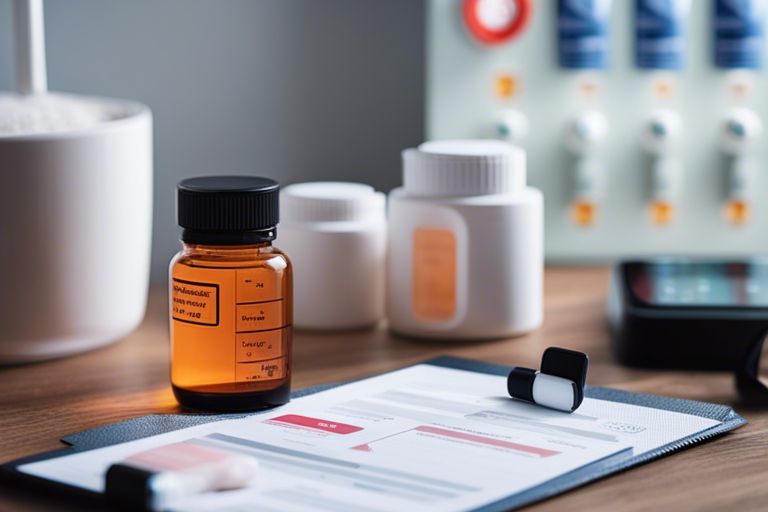
Key Takeaways:
- Establish a routine: Setting a specific time each day to take medication can help create a habit and make it less likely to forget.
- Use technology: Utilize smartphone apps, medication reminder alarms, or automated pill dispensers to help remind you to take your medication.
- Involve a caregiver: If needed, enlist the help of a family member or caregiver to assist in reminding you to take your medication regularly.
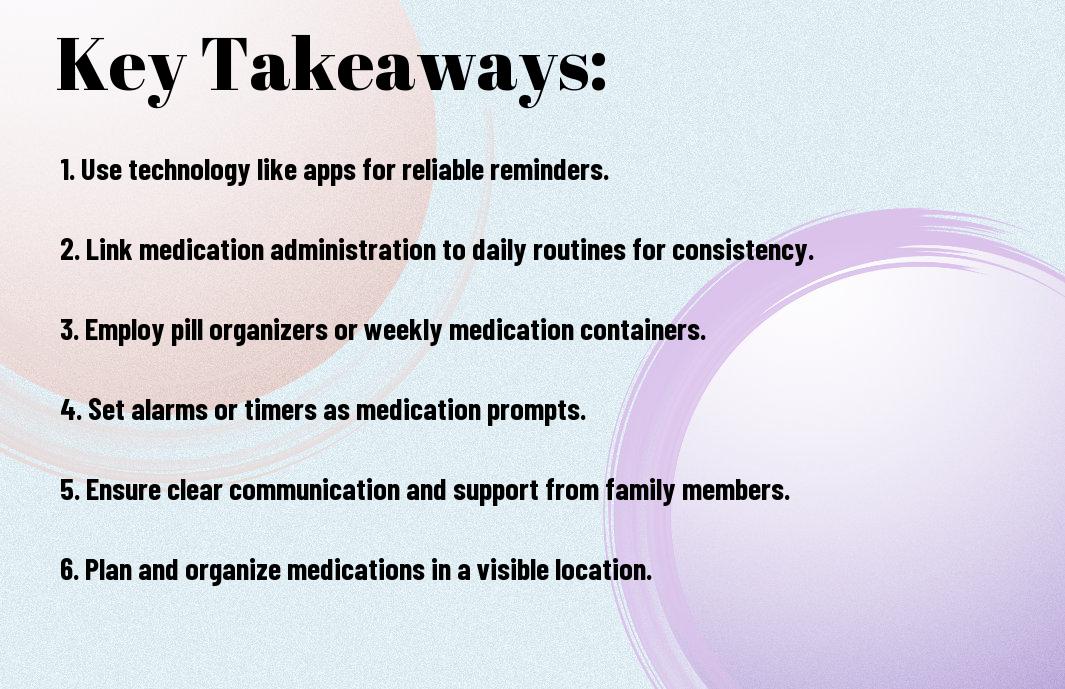
Identifying the Importance of Medication Adherence
While 31 creative ways you can remember to take your medication are helpful, understanding the importance of medication adherence is crucial for overall health. Adhering to prescribed medication schedules is vital for managing chronic conditions and ensuring the effectiveness of treatments. Failure to adhere to medication regimens can result in various complications and worsen health outcomes.
The Consequences of Non-Adherence
Non-adherence to medication regimens can lead to worsened symptoms, increased hospitalizations, and higher healthcare costs. Moreover, skipping doses or not following prescribed timings can reduce the effectiveness of medications, rendering them less potent in managing health conditions. In severe cases, non-adherence can even result in life-threatening situations.
The Benefits of Effective Medication Reminders
For individuals managing multiple medications, having effective medication reminders can improve adherence rates and ensure better health outcomes. By utilizing various reminder strategies such as alarms, pill organizers, or smartphone apps, individuals can stay on track with their medication schedules. These reminders can enhance medication efficacy and contribute to better overall health and well-being.
This emphasizes the importance of integrating reliable medication reminder strategies at home to maintain consistency in medication adherence. By incorporating these reminders into daily routines, individuals can better manage their health conditions and prevent potential complications associated with non-adherence.
Simple yet Effective Reminders
Assuming you or a loved one struggle with remembering to take medications regularly, implementing simple yet effective reminders can make all the difference in staying on track with your medication schedule.
Pill Boxes and Containers
Pill boxes and containers are a practical solution to organize and track medications. Fill up a weekly pill organizer at the beginning of each week to ensure you won’t miss a dose. Label each compartment with the day of the week to easily keep track of whether you’ve taken your medication for the day.
Alarms and Timers
An alarm or timer can be set on your phone or a standalone device to remind you when it’s time to take your medication. Schedule multiple daily alarms if you have a complex medication regimen, ensuring you never miss a dose. This method is particularly useful for individuals who have busy schedules or are easily distracted.
It’s important to set the alarms or timers at times when you are usually free and able to take your medication promptly. This way, you can avoid missing doses or doubling up on doses by mistake.
Sticker Charts and Calendars
On a sticker chart or calendar, mark off each day or dose of medication taken. This visual representation can be motivating and satisfying to see your progress over time. Place the chart or calendar in a prominent location as a constant reminder to take your medication as prescribed.
Calendars specifically can help in planning out your medication schedule for the month, allowing you to prepare refills ahead of time and never run out of imperative medications.
Technology-Based Solutions
Nowadays, technology plays a crucial role in helping individuals stay on top of their medication schedules. With the rise of smartphones and smart devices, there are various innovative solutions available to assist in medication reminders.
Mobile Apps for Medication Reminders
On the forefront of technology-based solutions are mobile apps designed specifically for medication reminders. These apps allow users to set up custom medication schedules, receive alerts when it’s time to take their medications, and even track their adherence over time. Some apps also offer features such as medication interaction checkers and refill reminders, making them valuable tools for managing medications effectively.
Smart Pill Bottles and Devices
For individuals who prefer a more hands-on approach, smart pill bottles and devices offer a tangible reminder system. These devices are designed to dispense medications at scheduled times and send alerts if a dose is missed. Some smart pill bottles even come equipped with built-in sensors to track medication usage and provide real-time adherence data to users and their caregivers.
Medication reminder devices like smart pill bottles are especially useful for individuals who may need additional support in managing their medications independently. These devices not only serve as a reminder but also offer a sense of security and peace of mind, knowing that doses are being monitored and accounted for.
Voice Assistants and Virtual Reminders
Utilizing voice assistant technology, such as Amazon’s Alexa or Google Assistant, is another innovative way to receive medication reminders at home. Users can simply program their voice assistants to provide daily medication prompts or set up recurring alarms for each dose. Virtual reminders through voice assistants offer a hands-free solution that can be particularly helpful for individuals with visual impairments or those who prefer auditory cues.
Voice assistants and virtual reminders provide a personalized and interactive approach to medication management, catering to the diverse needs of individuals in a technologically advanced society.
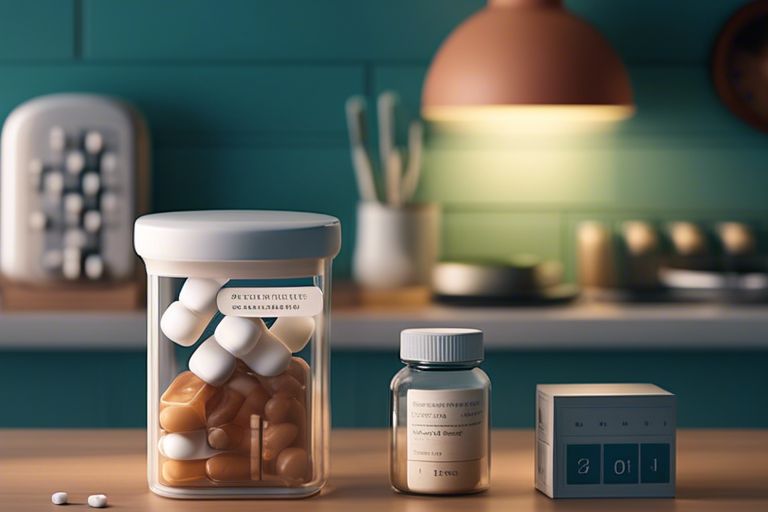
Enlisting Support from Others
Family Members and Caregivers
The support of family members and caregivers can play a crucial role in helping individuals stay on track with their medication regimen. Support from loved ones can involve setting up a daily reminder system, such as phone alarms or pill organizers, to ensure doses are not missed. It’s important for family members and caregivers to also encourage and remind individuals to take their medication regularly.
Friends and Neighbors
On occasion, individuals may find themselves in situations where they need assistance with medication reminders. Friends and neighbors can provide valuable support in such instances by offering reminders or even checking in to ensure medication has been taken. Building a strong support network within the community can help create a safety net for medication adherence.
With the fast-paced nature of life today, everyone can benefit from a little help from their friends and neighbors. Whether it’s reminding each other about medication or sharing tips on how to stay organized, this type of support can make a big difference in maintaining a consistent medication routine.
Healthcare Providers and Pharmacists
From providing detailed instructions on medication usage to offering personalized advice on managing side effects, healthcare providers and pharmacists play a crucial role in supporting individuals with their medication regimen. Seeking guidance and clarifications from healthcare professionals can help individuals better understand the importance of their medications and stay committed to their treatment plan.
Getting regular check-ins and follow-ups from healthcare providers and pharmacists can further enhance medication adherence. These professionals can offer insights on how to overcome challenges and provide encouragement to individuals who may be struggling with their medication routine.
Others who can provide support in medication reminders include support groups, online communities, and even mobile apps designed to help individuals track their medication schedule. By engaging with these resources, individuals can find additional tools and motivation to stay on top of their medication regimen.
Creating a Routine and Habit
Associating Medication with Daily Activities
With the hectic nature of daily life, it can be easy to forget to take medications. One effective strategy to combat this forgetfulness is to associate medication-taking with daily activities that are already part of your routine. For example, you can link taking your morning medications with brushing your teeth or having breakfast. By connecting medication with activities you already do without fail, you are more likely to remember to take your medications consistently.
Creating a Consistent Medication Schedule
With the help of technology, creating a consistent medication schedule has never been easier. Utilize smartphone apps or alarms to remind you when it’s time to take your medications. Set these reminders at the same times each day to establish a routine. Consistency is key in forming a habit, and by sticking to a set schedule, you can ensure that you won’t miss a dose.
Activities: Remember to take your medications with or after meals as instructed by your healthcare provider. This can help reduce the chances of experiencing stomach upset or other side effects.
Using Visual Reminders and Cues
Consistent visual cues can serve as powerful reminders to take your medications. Place your medication in a clearly visible area, such as next to your toothbrush or on the kitchen counter. You can also use pill organizers that have designated compartments for each day of the week. Seeing your medications prominently displayed can serve as a visual prompt and aid in adherence to your medication schedule.
Another: Consider setting up a whiteboard or calendar in your living space to track when you have taken your medications. This visual aid can also help you keep track of upcoming refill dates and doctor’s appointments.
Overcoming Common Challenges
Forgetting to Take Medication
The most common challenge individuals face when managing their medications at home is forgetting to take them. This can happen due to busy schedules, changes in routine, or simply slipping one’s mind. To address this issue, establish a consistent routine for taking medications. Consider linking it to daily activities such as meals or brushing your teeth. Additionally, using medication reminder tools such as pill organizers, phone alarms, or medication tracking apps can be helpful in staying on track.
Dealing with Complex Medication Regimens
On occasion, individuals may be prescribed complex medication regimens involving multiple pills to be taken at different times of the day. To manage this challenge effectively, it is crucial to organize medications in advance using compartmentalized pillboxes or setting up medication schedules. Consider seeking assistance from a trusted caregiver or family member to help you stay organized and ensure medications are taken as prescribed.
For instance, color-coding pills or using pill organizers with compartments for different times of the day can help simplify the process and reduce the likelihood of errors.
Managing Medication Side Effects
With any medication, there may be accompanying side effects that can impact an individual’s quality of life. It is important to communicate any side effects experienced to your healthcare provider promptly. They may be able to adjust the dosage or switch to an alternative medication with fewer side effects.
With proper monitoring and communication with your healthcare provider, side effects can be managed effectively to ensure the best possible outcome from your medication regimen.
Final Words
From above, it is clear that there are several effective medication reminder strategies that can be implemented at home to help individuals stay on track with their medication regimen. Whether it is utilizing technology like pill dispensers and medication reminder apps, setting up a daily routine, utilizing visual aids, or involving family members or caregivers, there are various options available to support medication adherence. It is crucial for individuals to find the strategy or combination of strategies that works best for them to ensure they are taking their medications as prescribed and managing their health effectively.
FAQ
Q: Why is it important to follow medication schedules at home?
A: Following medication schedules at home is crucial for managing chronic conditions, preventing complications, and ensuring the effectiveness of the treatment.
Q: What are some effective medication reminder strategies for home?
A: Some effective medication reminder strategies for home include setting alarms, using pill organizers, creating medication charts, and linking medication-taking to daily routines.
Q: How can setting alarms help with medication reminders at home?
A: Setting alarms on a phone or clock can serve as a helpful reminder to take medications at the scheduled times, especially for individuals with busy schedules.
Q: What is a pill organizer and how can it be useful for managing medications at home?
A: A pill organizer is a container with compartments for daily doses of medications. It can help individuals keep track of their medication intake and avoid missing doses.
Q: How can creating a medication chart assist in medication management at home?
A: A medication chart can help individuals visualize their medication schedule, track doses taken, and identify any missed doses or double doses, ensuring better adherence to the prescribed regimen.
Q: How can linking medication-taking to daily routines improve medication adherence?
A: Linking medication-taking to daily routines, such as meals or bedtime, can help establish a consistent medication schedule and make taking medications a habitual part of the day.
Q: What should one do if they are still struggling with medication adherence at home despite using reminder strategies?
A: If someone is still struggling with medication adherence at home, they should consult their healthcare provider. They may be able to provide additional support, adjust the treatment plan, or suggest alternative reminder strategies.
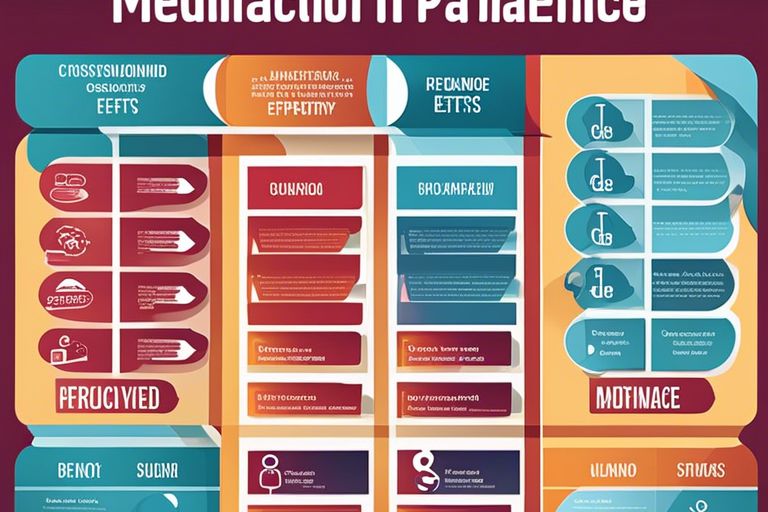
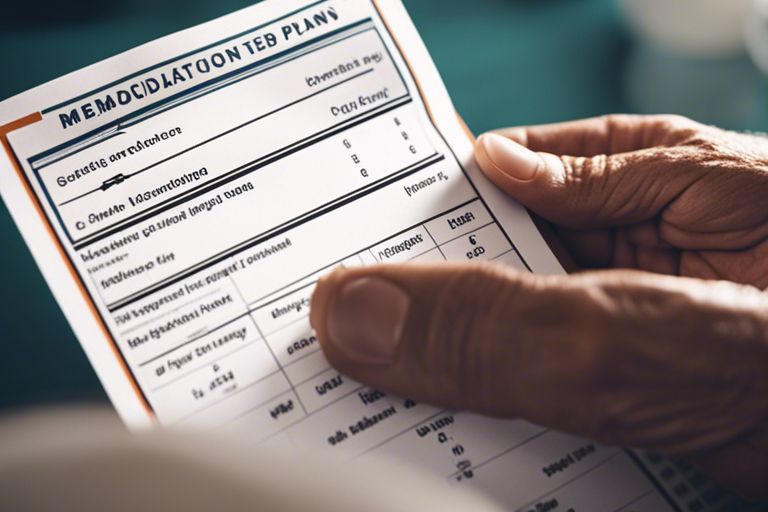
No Comments